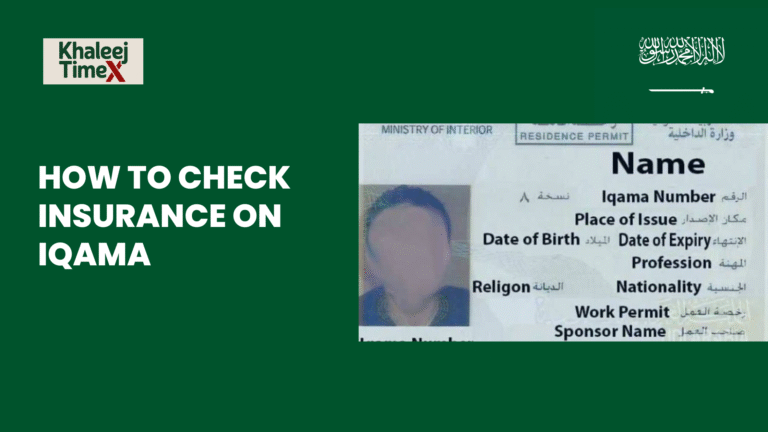Guide to Exiting and Re-Entering Saudi Arabia with Jawazat
This comprehensive guide provides an in-depth exploration of the exit and re-entry visa system managed by Saudi Arabia’s General Directorate of Passports (Jawazat). It covers visa types, application processes, requirements, recent policy changes, and best practices to ensure smooth travel for expatriates, business travelers, and residents. The information is current as of June 8, 2025, based on authoritative sources, ensuring accuracy and relevance.
The General Directorate of Passports, known as Jawazat, is Saudi Arabia’s authority for managing immigration processes, including visa issuance, residency permits (Iqama), exit and re-entry permits, and border control. With millions of expatriates (approximately 13.4 million, or 41.6% of the population as of 2023), Saudi Arabia relies on Jawazat to regulate travel and ensure compliance with immigration laws.
This guide aims to help expatriates navigate the exit and re-entry visa system, avoiding penalties such as fines or re-entry bans, and ensuring seamless travel for work, family visits, or other purposes.
Role of Jawazat
Jawazat oversees:
- Issuance and management of exit and re-entry visas.
- Administration of Iqama (residency permits) for expatriates.
- Enforcement of immigration regulations, including penalties for violations.
- Coordination with employers and sponsors for visa processing.
- Border control at land, sea, and air ports.
Compliance with Jawazat’s regulations is critical to avoid legal complications, especially for expatriates who frequently travel in and out of the Kingdom.
Types of Exit and Re-Entry Visas
Saudi Arabia offers two primary types of exit and re-entry visas, each tailored to different travel needs:
| Visa Type | Validity | Duration | Extendable |
|---|---|---|---|
| Single Exit Re-Entry Visa | Permits one exit and re-entry | Up to 30 days | Yes, with fees |
| Multiple Exit Re-Entry Visa | Allows multiple exits and re-entries | Up to 3 months | Yes, with fees |
- Single Exit and Re-Entry Visa:
- Allows one exit and one re-entry within a 30-day validity period.
- Ideal for short-term travel, such as family visits or emergencies.
- Can be extended from outside the Kingdom through employer intervention, subject to additional fees.
- Multiple Exit and Re-Entry Visa:
- Permits multiple exits and re-entries within a validity period of up to 3 months.
- Suitable for frequent travelers, such as business professionals or students studying abroad.
- Requires an active Iqama and employer approval for issuance and extensions.
Understanding your visa type is crucial for planning travel and ensuring compliance with Saudi immigration laws, as highlighted in sources like Saudi Exit/Re-Entry Visa 2025.
Essential Steps to Obtain an Exit and Re-Entry Visa
To obtain an exit and re-entry visa, follow these steps:
Prerequisites and Requirements
Before applying, ensure the following conditions are met:
- Valid Iqama: Your residency permit must be valid for at least 30 days to apply for an exit visa, as per new rules effective January 2025.
- No Outstanding Fines: Clear all traffic violations or other penalties via Absher.
- Passport Validity: Must be valid for at least 90 days for exit/re-entry visas or 60 days for final exit visas.
- Fingerprint Registration: Required for individuals aged 15 and above.
- Physical Presence: You must be in Saudi Arabia at the time of visa issuance.
- No Valid Visa: Ensure no existing unused visa or violations exist.
Application Process
Applications are typically processed by employers or sponsors through official platforms:
- Via Absher:
- Log in to your Absher account at Absher.
- Navigate to Services > Passports > Visa Requests > Create Visa Request.
- Select “Exit Re-Entry Visa (Single)” and specify the return period (maximum 30 days).
- Confirm and pay the required fee.
- For dependents, go to Family Members > Visa Services > Dependent > Issue Visa, select single or multiple visa, confirm, and print if needed.
- Via Muqeem:
- Visit the Muqeem portal at Muqeem.
- Log in and go to Electronic Transactions > Electronic Exit Re-Entry Visa > Issue Exit Re-Entry Visa.
- Enter your Iqama number and desired period, issue the visa, and print or save a digital copy.
Approval and Documentation
- Once approved, download and print the visa permit.
- Verify all details, including validity and return deadline.
- Carry a valid passport, printed visa copy, and Iqama when traveling.
Fees for Exit and Re-Entry Visas
The cost of exit and re-entry visas varies by type:
- Single Exit/Re-Entry Visa:
- Base fee: 200 SAR (approximately 53.32 USD) for 2 months.
- Extension fee: 100 SAR per month (30 days = 1 month, 31-60 days = 2 months).
- Multiple Exit/Re-Entry Visa:
- Base fee: 500 SAR (approximately 133.29 USD) for 3 months.
- Extension fee: 200 SAR per month.
- Note: Non-Saudi workers are not charged an application fee; employers cover the cost. Fees are non-refundable once the visa is issued.
Validity and Travel Rules
- Single Exit/Re-Entry Visa:
- Valid for up to 30 days, allowing one exit and re-entry.
- Multiple Exit/Re-Entry Visa:
- Valid for up to 3 months, allowing multiple exits and re-entries.
- Travel Requirements:
- Travel must occur within 3 months of visa issuance, or a fine may be imposed.
- Return to Saudi Arabia before the visa expires to avoid penalties, such as fines or re-entry restrictions.
Checking Visa Status
Regularly checking your visa status ensures compliance and prevents travel issues. Use these platforms:
- Absher:
- Log in to Absher.
- Go to Guaranteed Services > Inquiries > Exit and Return Visa Status.
- View details and print or save for records.
- Muqeem:
- Visit Muqeem Visa Validity.
- Enter your Iqama or visa number.
- Check status and take a screenshot or print for documentation.
For dependents, the primary account holder can check statuses via Absher’s Family Members section.
Common Issues and How to Avoid Them
Expatriates may encounter the following issues:
- Iqama Expiry During Travel:
- Ensure your Iqama is valid for the entire travel period (at least 30 days for exit visa applications).
- If it expires abroad, your employer must renew it before re-entry.
- Missed Return Deadline:
- Overstaying can lead to fines or complications, though the three-year re-entry ban was lifted in January 2024.
- Request an extension via Absher or Muqeem before the visa expires.
- System Errors:
- Technical glitches on Absher or Muqeem may occur.
- Try again later or contact Jawazat or your employer for assistance.
- Legal or Travel Bans:
- Check for bans or pending legal cases on Absher before traveling.
- Resolve issues to avoid complications at the border.
Emergency Exit Visa Procedures
For urgent situations, Jawazat provides specific procedures:
- Final Exit Visa:
- Required for permanent departure from Saudi Arabia.
- Processed through Absher or Muqeem by the employer or sponsor.
- Requires a passport valid for at least 60 days and a valid Iqama.
- Exit Without Return (Huroob):
- Failure to return before visa expiry may result in Huroob (absconding) status, leading to complications.
- The lifting of the three-year ban (January 2024) allows re-entry, but penalties may still apply.
- Special Cases:
- For legal issues, contact Jawazat offices or your embassy for guidance.
Special Cases for Exit and Re-Entry
Certain groups face unique considerations:
- Hajj and Umrah Travelers:
- Must exit Saudi Arabia before their visa expires to avoid heavy fines or future travel bans.
- Coordinate with travel agencies or Jawazat for compliance.
- Students Studying Abroad:
- Multiple exit/re-entry visas are recommended for extended stays.
- Ensure Iqama validity during the study period.
- Emergency Situations:
- Employers can expedite visa processing for urgent exits.
- Contact Jawazat or your embassy for assistance in critical cases.
Best Practices for Smooth Exit and Re-Entry
To ensure a seamless travel experience:
- Plan Early: Apply for your visa well in advance to account for processing times.
- Keep Documents Ready: Carry a valid passport, printed visa copy, and Iqama at all times.
- Stay Updated: Monitor Jawazat announcements and check Absher or Muqeem for updates.
- Communicate with Your Employer: Inform your sponsor of travel plans to ensure timely processing.
- Use Official Platforms: Rely on Absher and Muqeem for accurate and secure visa services.
Recent Policy Changes
As of June 2025, several updates have been made to Saudi Arabia’s exit and re-entry visa policies:
- Lifting of Three-Year Entry Ban (Effective January 16, 2024):
- Expatriates who failed to return before their visa expired are no longer subject to a three-year re-entry ban, as per Saudi Gazette.
- Conditions for re-entry include no outstanding fines, no prior visa violations, and a passport valid for at least 90 days.
- Stricter Exit Visa Rules (Effective January 2025):
- Iqama must have at least 30 days validity to apply for an exit visa, per Fragomen.
- If validity is 30-60 days, the final exit visa matches the Iqama’s remaining validity; if 60+ days, a 60-day exit visa is issued.
- Extended Visa Duration:
- Multiple exit/re-entry visas can be extended beyond one year (up to two years) if the Iqama remains valid, as noted in Saudi Scoop.
These changes reflect Saudi Arabia’s efforts to balance immigration enforcement with flexibility for expatriates.
Navigating Saudi Arabia’s exit and re-entry visa system requires careful planning, adherence to Jawazat’s regulations, and proactive communication with employers. By understanding visa types, following application procedures, and staying informed about recent changes, expatriates can avoid penalties and ensure smooth travel.
Regularly checking visa status via Absher or Muqeem and maintaining valid documentation are key to compliance. For the latest updates, refer to official sources like Absher, Muqeem, or the Saudi Ministry of Interior.


